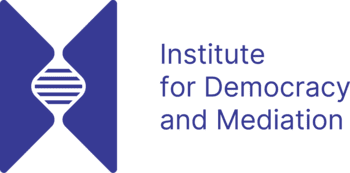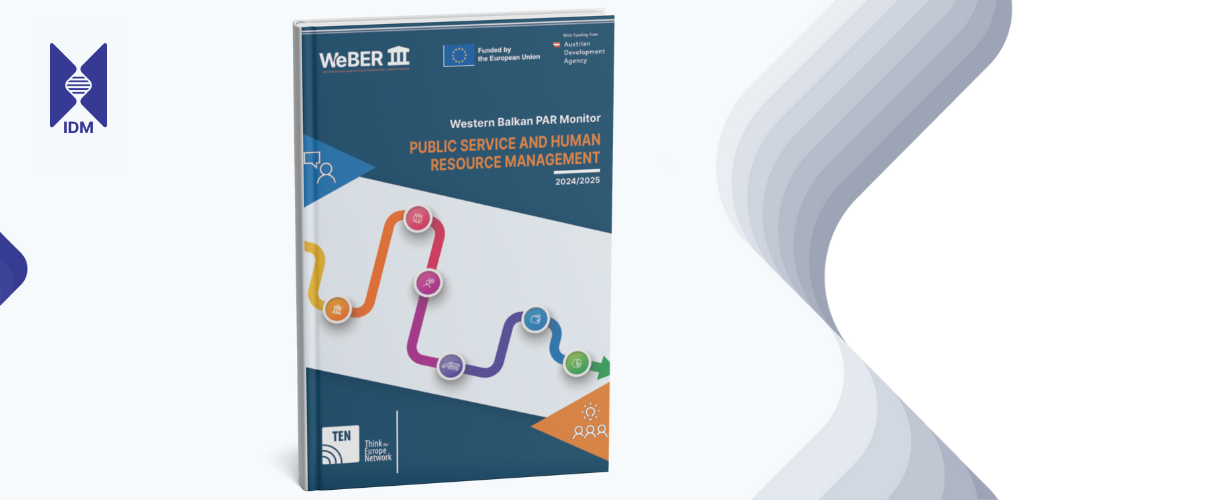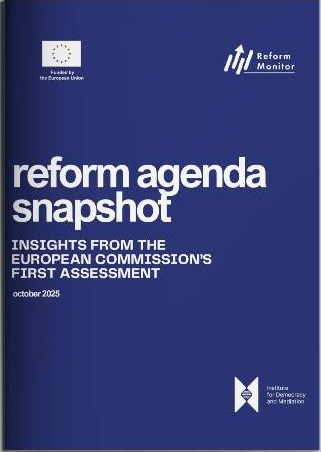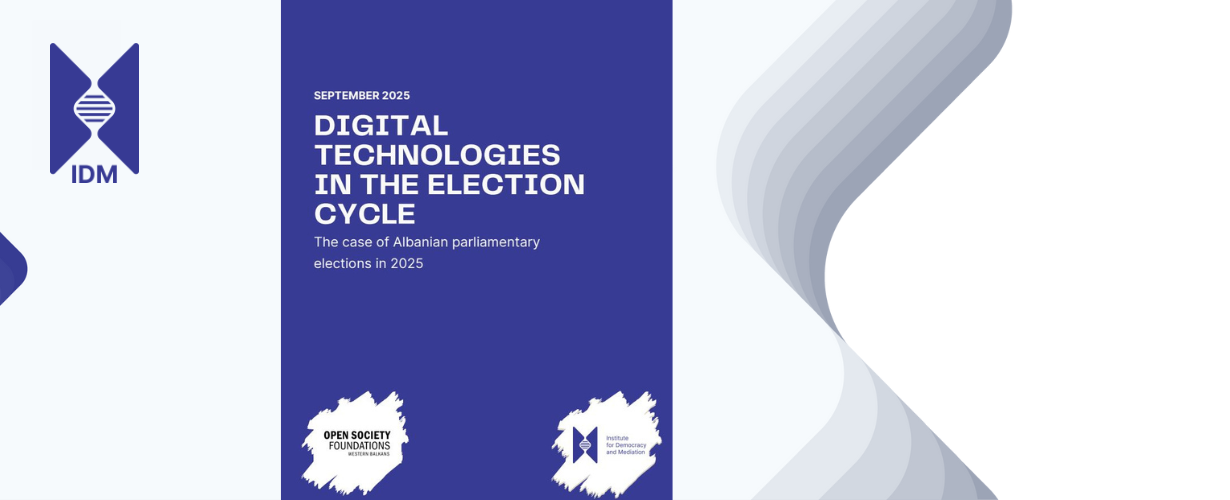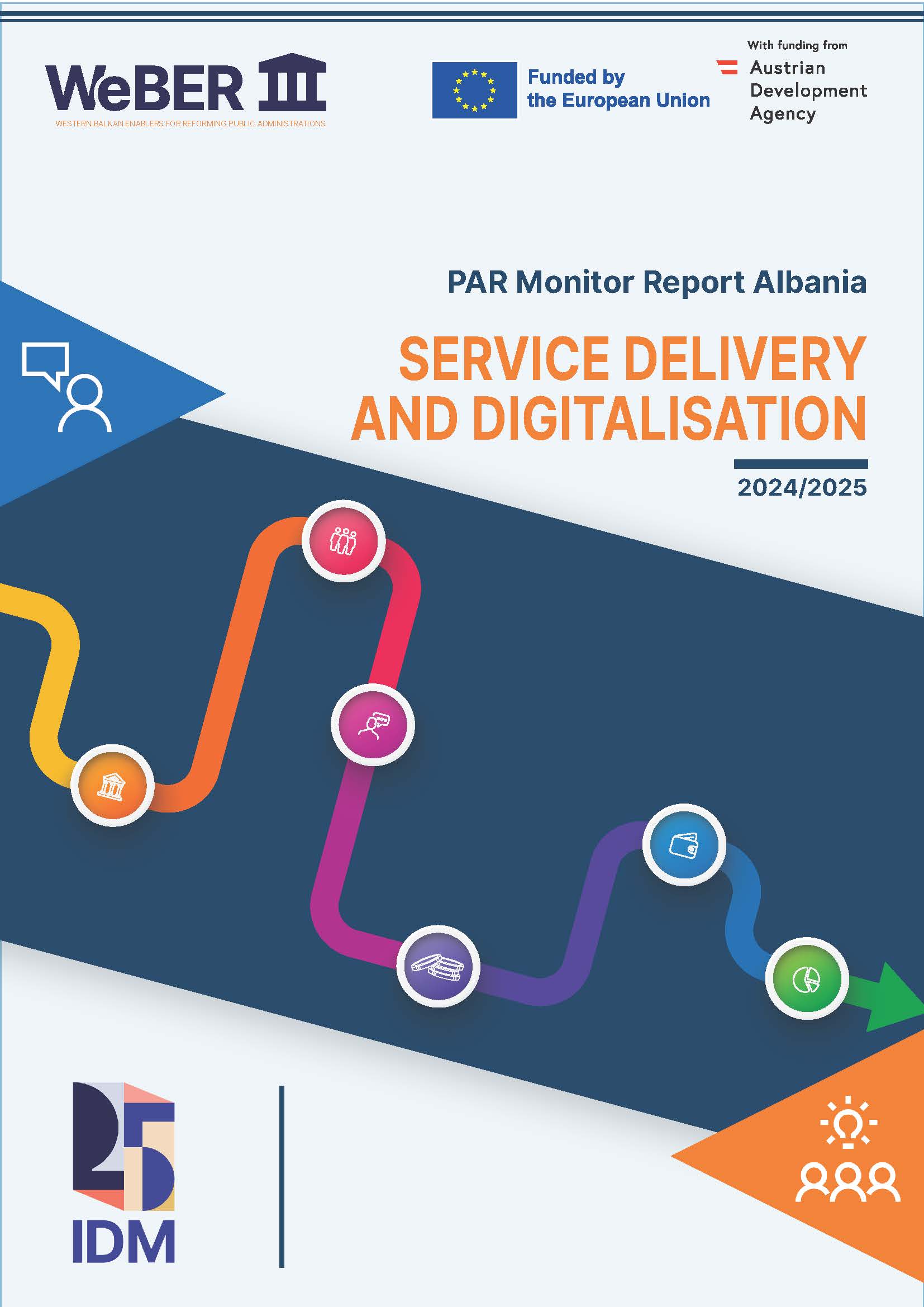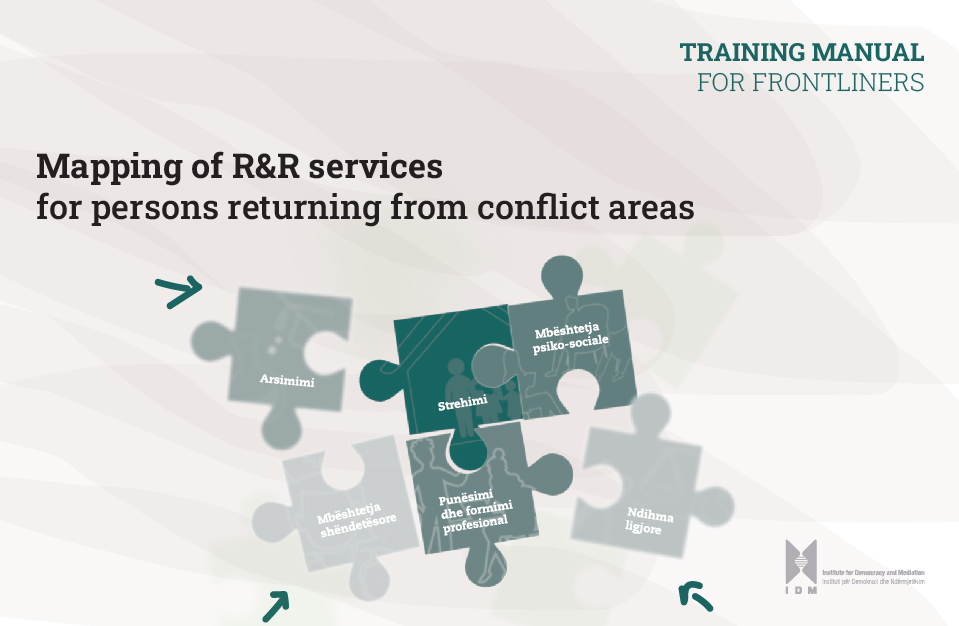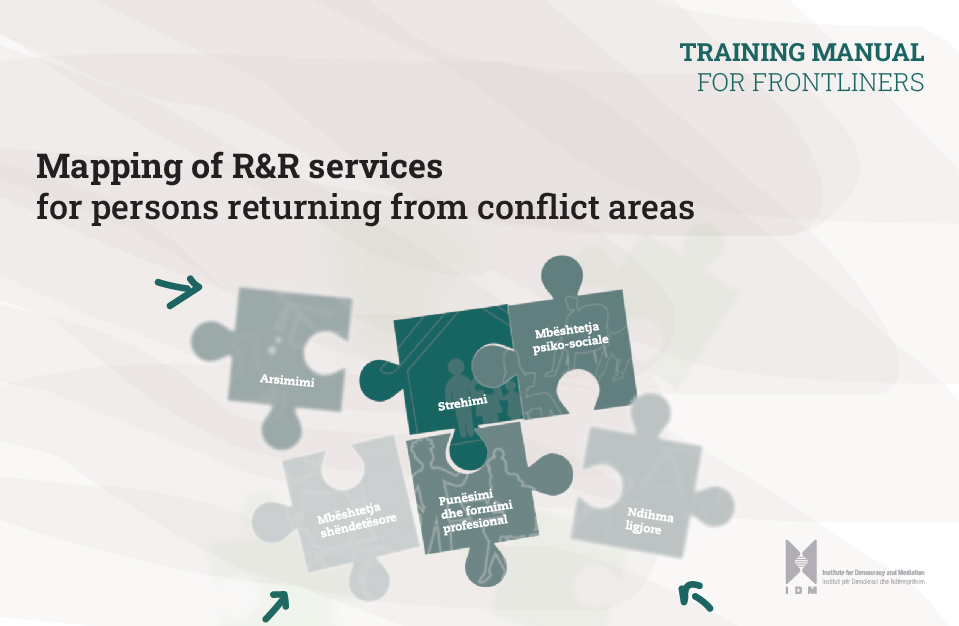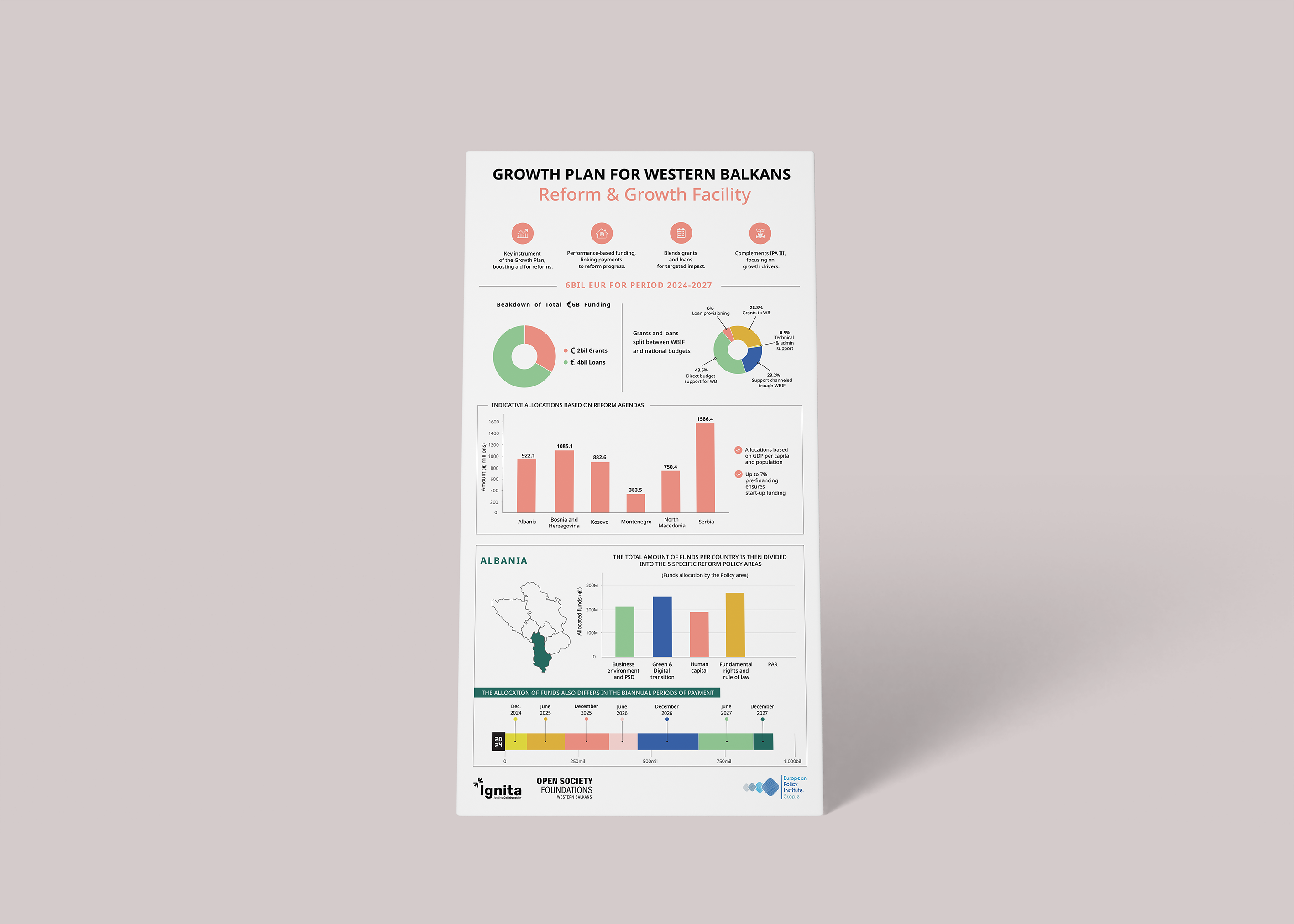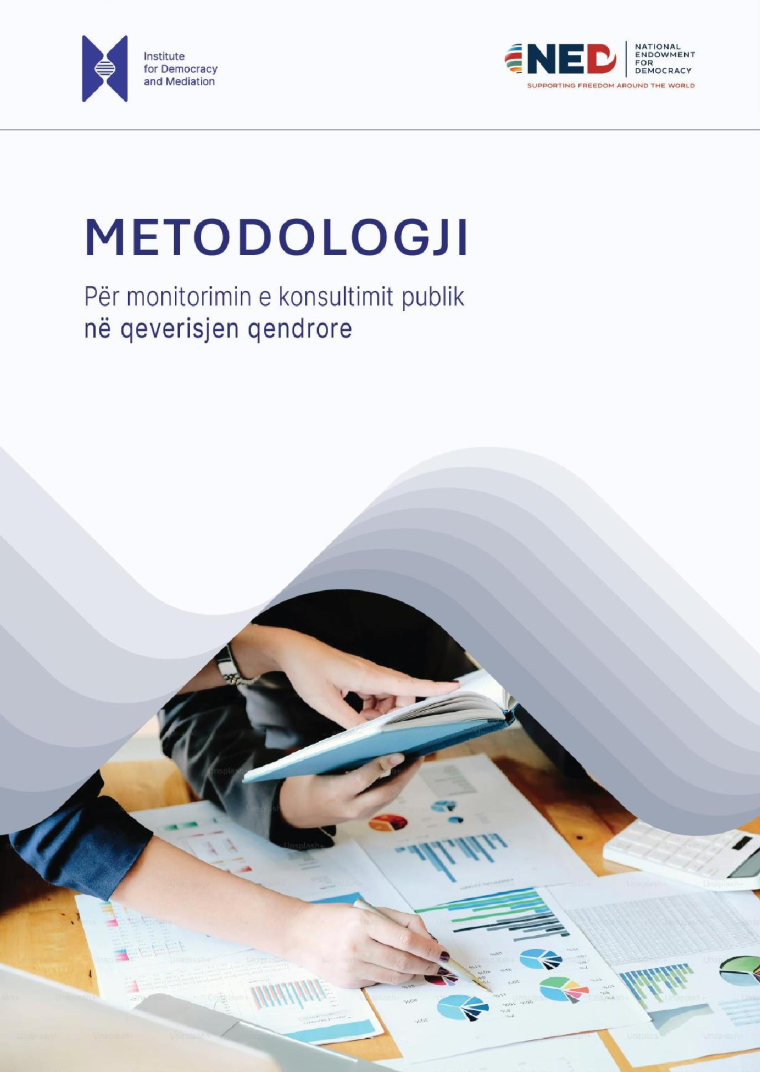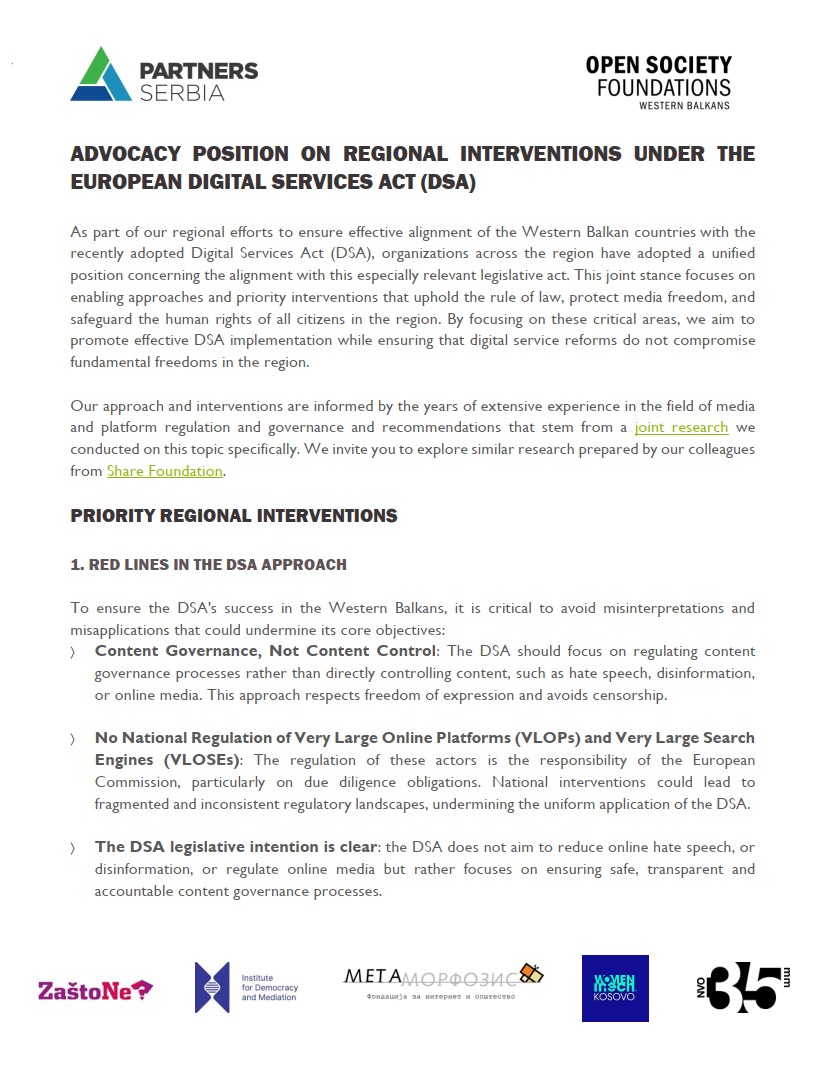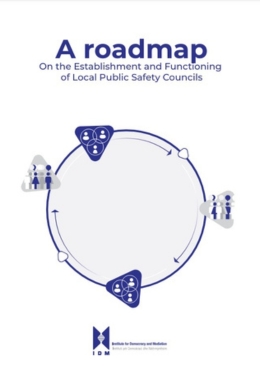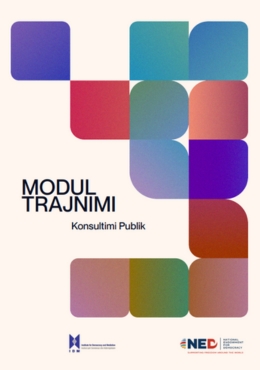Effective reintegration approaches require engagement and work with communities, local and central institutions, frontline workers, individuals and families of returnees, and individuals who might be more likely to be influenced by extremist ideologies. Effective programs to rehabilitate and reintegrate returning foreign fighters are crucial not only to preventing acts of violence, but also to mitigating further radicalization among the youth population and building overall community-level resilience to violent extremism. The practice so far has shown that multi-sectoral cooperation ensures the continuity and sustainability of R&R interventions.
This training module aims to inform frontline workers about the types of rehabilitation and reintegration programs and the access of returnees to these programs. The module provides step-by-step instructions that guide the work of the frontline workers during the process of service delivery
These programs include access to rights and services organized according to the following areas of intervention:
1.Legal (civil registration, citizenship, legal issues);
2.Socio-economic (housing, employment, vocational training, healthcare, psycho-social assistance);
3.Social cohesion (education, language learning and social orientation, promoting participation and inclusion in the community).
This module target frontline workers, local government officials, social workers, psychologists, health professionals, teachers and the police, who should facilitate access to services for individuals returning from conflict zones.
The module is structured in five major sections:
1. The first part of the module provides an overview of VE in Albania, focusing on the importance of R&R programs for returnees from conflict zones.
2. The second part of the module sheds light on the profile of women and children returning from conflict areas as vulnerable groups with special needs.
3. The third section describes the general principles for R&D program delivery and the importance of an integrated multidisciplinary and multi-stakeholder approach.
4. Chapter four describes some positive cases and practices of R&R programs in different countries.
5. The last section maps R&R programs by main areas and sub-areas of the intervention. The intervention plan provides a brief description of the service focusing on the needs of the group under consideration, the legal and sub-legal framework, scope of work, responsible institutions and persons as well as the steps and procedures to be followed to access the service.
Click to download the guideline in Albanian and a short summary of the module in english.
This training manual was made in the framework of the programme “Sustainable community-based reintegration of Albanian nationals returning from Syria”. This program is being implemented in Albania by the Institute for Democracy and Mediation in cooperation with the Observatory for the Rights of Children and Youth and the Women’s Center for Development and Culture in Albania, under the national coordination of the Coordination Center Against Violent Extremism, with the support of the Global Community Engagement and Sustainability Fund (GCERF).
